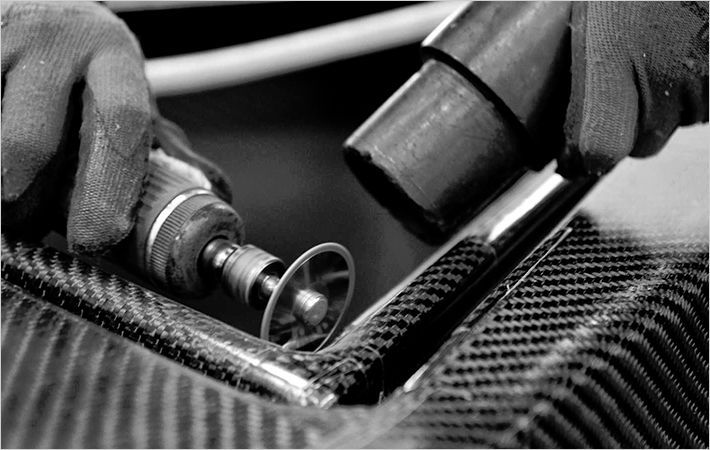Colleen Athans, Vice President and General Manager, Supply Chain was joined by Governor Pat McCrory and North Carolina Commerce Secretary Sharon Decker to announce final approval from the state's Economic Investment Committee (EIC).
The new 125,000-square-foot facility (next to an existing GE Aviation machining plant) will produce engine components made of advanced ceramic matrix composite (CMC) materials.
GE could begin hiring at the new CMC components plant as early as 2014. Within five years, the workforce at the plant is expected to grow to more than 340 people.
The new facility will be part of a larger commitment by GE Aviation to invest $195 million across its North Carolina operations through 2017. GE Aviation has more than 1,300 employees in North Carolina at sites in Durham, West Jefferson, Wilmington, and Asheville. Overall, the new CMC facility, combined with plant and equipment upgrades at existing sites across North Carolina, will create 242 additional GE jobs by 2017.
"Part of our state's economic recovery not only relies on creating new jobs here, but also on retaining great companies like GE," said Governor McCrory. "We're serious about building on existing industries in North Carolina and this project is a perfect example of our commitment."
The workforce (290 employees) at GE Aviation's current machining operation in Asheville will gradually transition to the CMC components plant. Over the next decade, the current machining work at the Asheville shop could be transitioned to other GE facilities.
The introduction of CMC components into the hot section of GE jet engines represents a significant technology breakthrough for GE and the jet propulsion industry. CMCs are made of silicon carbide ceramic fibers and ceramic resin, manufactured through a highly sophisticated process and further enhanced with proprietary coatings.
GE Aviation views CMCs as a differentiator for its next-generation aircraft engines. The ultra-lightweight CMC material supports extremely high temperatures in the high-pressure turbine. CMC benefits include: reduced weight, enhanced performance and improved durability that provides longer time on wing, translating into lower fuel and maintenance costs for customers.
"GE has been investing in CMC technology for decades, and we are mastering the manufacturing of CMCs at our laboratory in Delaware. Asheville will be our first factory involved in the mass production of CMC components," said David Joyce, president and CEO of GE Aviation. "We believe the future Asheville plant will be on the ground floor of a new technology that will change aviation."
The specific CMC component to be built in the new Asheville facility is a high-pressure turbine shroud, a stationery component that directs exhaust gases through the high-pressure turbine. More importantly, this CMC component will be on the best-selling LEAP jet engine, being developed by CFM International, a joint company of GE and Snecma (SAFRAN) of France. The LEAP engine, which will enter airline service in 2016, will power the new Airbus A320neo, Boeing 737 MAX and COMAC (China) C919 aircraft.

